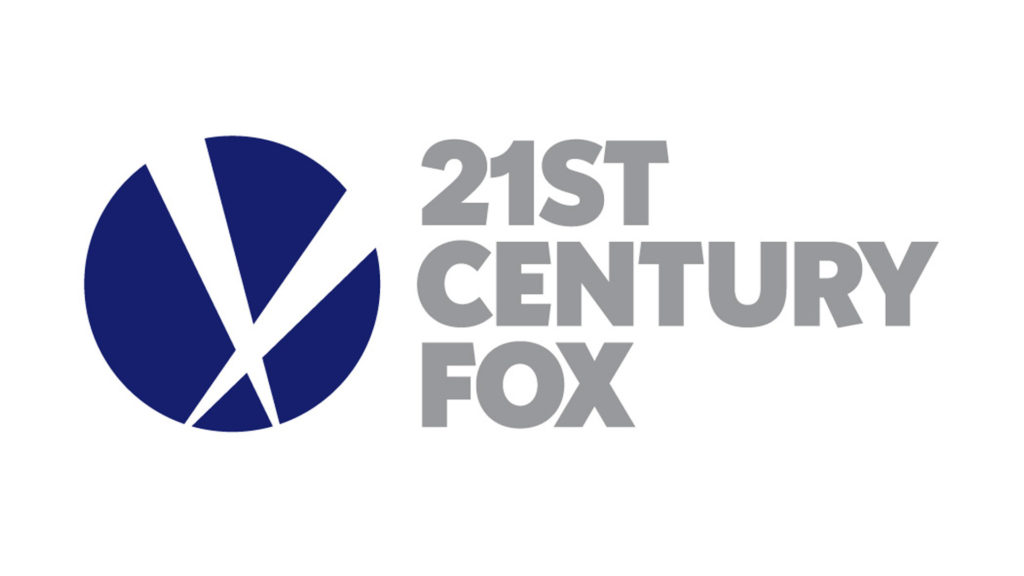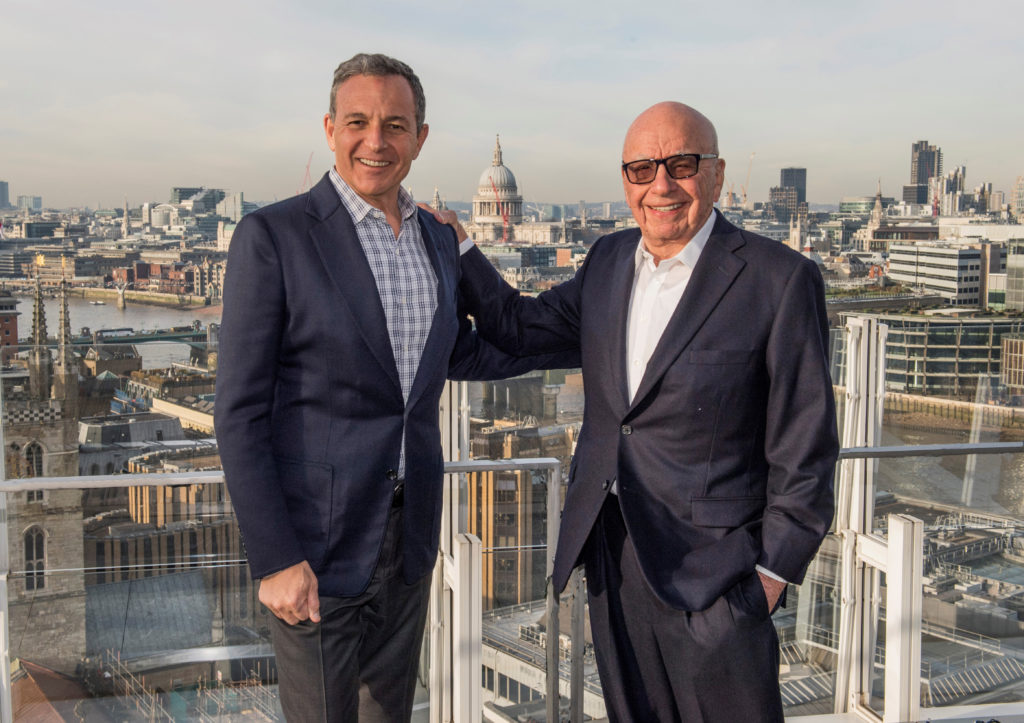SEC Filing Reveals Disney Fox Deal Timeline
In a filing with the SEC, Disney provided a timeline of how the deal to acquire 21st Century Fox came to be, other interested parties, and how they decided what assets Disney would keep. Here's how the Disney Fox deal went down:
August 9, 2017: Disney CEO Bob Iger met with 21st Century Fox head Rupert Murdoch in Los Angeles to discuss the state of the entertainment industry and the evolving challenges as the media landscape changed. While they met from time-to-time, in this instance, they discussed the possibility of a strategic transaction between the two companies.
August 14: Rupert's sons Lachlan and James met with Verizon who indicated an interest in purchasing 21st Century Fox, but as an all-stock transaction without a premium to current market prices.
August 29: Bob Iger called Rupert Murdoch to follow up on their discussion and they both agreed to explore a combination.
Early September 2017: Fox told Verizon it was not interested in their offer.
From September 12 to September 25: John Nallen, Senior Executive Vice President and Chief Financial Officer of 21st Century Fox, and Kevin Mayer, Senior Executive Vice President and Chief Strategy Officer of Disney, engaged in preliminary discussions regarding a potential strategic transaction, including, among other things, the mix of businesses that would be acquired, related regulatory considerations and the tax implications of various transaction structures.
September 29: At a Disney Board Meeting, Iger and Mayer reported on the potential transaction. The Board supported further exploration of a deal and agreed to a mutual confidentially agreement.
October 25: Bob Iger and Rupert Murdoch met again where Murdoch mentioned the importance of Iger's leadership during the transaction and integration. Later, Disney representatives presented to the 21 Century Fox leadership. They highlighted long-term growth prospects across Disney’s business platforms in light of the historical financial performance of such businesses, Disney’s successful integration of prior media acquisitions, its innovation in direct-to-consumer offerings and the complementary nature of the RemainCo businesses with Disney’s businesses.
October 27: Disney and Fox discussed the price. Disney offered a $60 billion valuation with 40% in cash and 60% in stock for a price of $23 per share. 21st Century Fox believed this offer to be inadequate and conveyed their decision to Disney on the following day.
November 6: CNBC reported that 21st Century Fox had been holding talks to sell most of Fox's assets to Disney, including, entertainment networks such as FX and National Geographic, Fox's movie studios and television production and international assets such as Star and Sky. In addition, 21st Century Fox received an unsolicited notice of interest from Comcast for the assets outlined in the CNBC report.
November 7: Kevin Mayer informed 21st Century Fox that Disney was considering improving its prior indication of interest and suggested that the parties re-engage on a possible business combination between the parties. The parties agreed to resume discussions, including among other things, transaction value, the allocation of businesses, and relevant tax considerations.
November 10: Representatives of 21st Century Fox and Comcast met to discuss a possible transaction.November 14: Comcast made an all-stock offer of $34.41 per share.
November 15: Following their shareholder meeting, the board of 21 Century Fox met and discussed their options including remaining independent or combining with Verizon, Disney, or Comcast. They continued to believe that Verizon's offer was inadequate. They authorized continued discussions with Disney and Comcast, but were concerned about regulatory issues with Comcast due to scrutiny placed on their prior deal with NBC Universal.
November 18: Comcast discussed the regulatory risk with Fox. Comcast would not agree to a reverse termination fee payable in the event that the parties were unable to obtain regulatory approval to consummate a potential strategic transaction.
November 19: Iger, Rupert Murdoch, and their CFOs met to discuss the deal. Disney made a proposal to acquire the assets at $28 per share. This was an increase of $6 billion compared to their previous offer.
November 20: Disney and Fox met to discuss the 20th Century Fox studio lot and their investment in Roku. They agreed to allocate those assets to New Fox as a way of reaching an agreement on the $28 per share price.
November 28: The Fox board met to review the Disney and Comcast proposals. They expressed concerns regarding Comcast being able to achieve regulatory approval, especially since the way Comcast structured the deal would make divesting assets beneficial to Comcast. They also discussed that Comcast would not agree to a regulatory termination fee. Because of this, they decided to make negotiating with Disney a priority but authorized continued negotiations with both parties.
Meanwhile, the Disney board also met and agreed to continue conversations with 21st Century Fox with an eye on making a decision in the next two to three weeks. The board, not including Bob Iger, also discussed the possibility of extending Iger's contract with Disney if the transaction was completed.
November 30: Disney proposed a termination fee of $750 million if regulatory approvals were not able to be obtained. Disney also proposed that assets such as the Big Ten Network, Home Team Sports and Fox Sports College Properties, which had been set to go to Disney in the previous proposal, be allocated to New Fox as part of reaching an agreement on the Disney stock price to reach the agreed to purchase price.
December 1: Fox and Comcast discussed regulatory remediation. Comcast proposed terms that were less advantageous to Fox shareholders than the Disney deal.
December 6: Fox's board met via a conference call. They discussed both offers. They considered the price offered, regulatory remedies, tax issues, and value of the acquiring company's stock. In light of this, the board agreed to focus on negotiating with Disney and discontinue talks with Comcast.
December 7: Rupert Murdoch told Comcast that they will be focusing on other opportunities.
December 8: The non-management members of the Disney board met via conference call to receive an update from the Disney Compensation Committee regarding the status of the proposed extension of Bob Iger's employment agreement. The discussed the economics of the potential benefits to Disney in light of the proposed transaction with Fox.
December 12: Bob Iger met with Rupert Murdoch in London to talk about the current talks.
December 13: The boards of Disney and Fox both met and agreed to merge. Additionally, the Disney board voted to extend Bob Iger's employment agreement as well as increasing his compensation.




